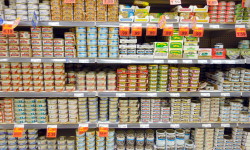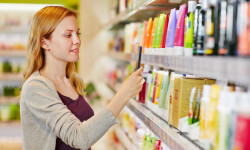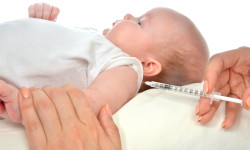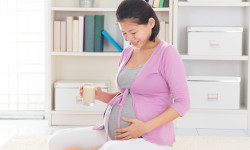Kardashian Health Tips: Fact or Fiction

Kourtney may be the least irrational Kardashian, but the eldest sister of a family that’s somehow famous for being famous has a low bar to clear when it comes to normalcy. The Kardashian family’s health advice includes eating your own placenta (in pill form), using manuka honey to “prevent” illness, and staying away from any food that isn’t organic.
Kourtney’s new branding identity as a wellness guru should offend anyone involved with public health. Her latest rant details her aversion to plastic. She admits to using stainless steel cups, bowls, lunchboxes, and even straws because the material is “more durable, more hygienic and doesn’t contain chemicals.”
Unfortunately—and unsurprisingly—not all of Kourtney’s assertions are accurate.
Stainless steel is superior in resisting corrosion and bacterial growth, which is one reason why surgical instruments are often made of high-quality stainless steel. But this ability should not serve as a replacement for proper cleaning techniques. Dishwashers may not remove all food particles from dishware, especially sippy cup lids and reusable straws, and some common bacteria like C. botulinum can survive in high temperature conditions. Despite the ability of stainless steel to resist bacterial growth, organisms can certainly find a way to proliferate on stainless steel surfaces if given the opportunity.
Oddly enough, the very chemical which Kourtney resolves to avoid, bisphenol A or BPA, provides a similar protective effect in plastics. BPA strengthens hard plastics, and when used in resins coating food containers, prevents spoilage and contamination by dangerous bacteria.
The celebrity’s least-scientific belief though, is that stainless steel “doesn’t contain chemicals.”
Kourtney, let us introduce you to the wonderful world of chemistry.
Stainless steels are mixtures of metallic elements – i.e. chemicals – which contain varying concentrations of iron, carbon, nickel, cobalt, manganese, chromium, molybdenum, nitrogen, copper, titanium, phosphorus, sulphur, selenium, niobium, silicon, and calcium.
If you believe the above metals are “safe” because they’re “natural,” we implore you to research the effects of high levels of natural elemental mercury and lead in the body. And in fact, the National Toxicology Program even lists nickel and cobalt, two metals which can be found in stainless steel, as human carcinogens.
That’s not to suggest consuming food or beverages out of stainless steel containers will harm you. But fearing the presence of “chemicals” when every substance on Earth is composed of chemicals is silly.
Although chemophobia might be a great way for today’s celebrities to drive profits, it is no friend of the scientific community. Rather than basing your family’s health decisions on the Kardashian’s latest obsession, focus on providing meals which fulfill USDA nutrition recommendations, and encouraging your little ones to get outside and play.





